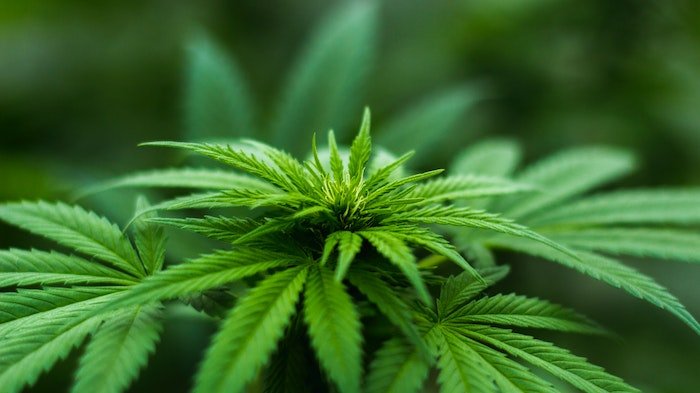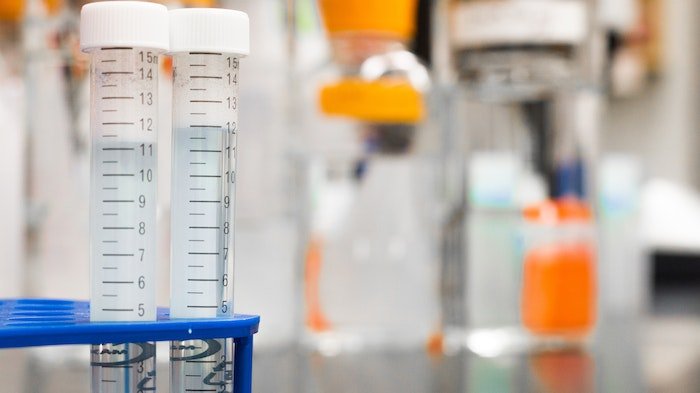- Home
- Addiction Guides
- How Long Does Cannabis (Weed) Stay in Your System?
How Long Does Cannabis (Weed) Stay in Your System?
The time that it takes for cannabis to leave the system depends on a lot of different factors.
Here, you will find information all about cannabis – what it is, how it is taken, how long it stays in the system, and how it can be tested for.
What is Cannabis?

Cannabis is a psychoactive drug. This means it is a drug that primarily affects the mind. [1]
Cannabis is a Class B drug, which means that it is illegal to use, possess or sell cannabis in the UK. [2]
How Common is Cannabis Use?
After alcohol and tobacco, cannabis is one of the most frequently used addictive substances in the UK.
This means that cannabis is among the most commonly used illegal drug among adults.
One study published by the UK government found that 18.7% of young adults (aged between 16 and 24) had used cannabis in the last year, with the statistic being 7.8% for older adults (those up to the age of 59). [3]
What are the Different Names for Cannabis?
Cannabis is known by many different names – for instance, it can be known as marijuana and cannabis.
It also has many street names, these include:
- dope
- pot
- grass
- weed
- bud
- herb
- joint
- blunt [4]
What are the Different Types of Cannabis?
Cannabis is made from plants known as cannabis Sativa and cannabis Indica. Almost all parts of the cannabis plant can be dried and used as cannabis.
This includes the leaves and the flowers, but also other components such as the seeds and the stems.
The dried plant matter can then be taken in different ways.
What are the Different Ways that Cannabis Can be Used?

There are several different ways that cannabis can be taken to achieve a high. These include:
- smoking ‘joints’ in the style of a cigarette
- smoking a ‘bong’ using a pipe or water
- smoking using ‘blunts’ – where cigars are emptied and replaced with the drug
- smoking using vaporisers – often using an extract of liquid cannabis to protect the lungs from inhaling smoke
- ingesting using ‘edibles’ – adding the drug to cooking, or brewing it like tea and drinking [5]
What is in Cannabis?
Research has shown that cannabis is a ‘complex plant’. that is made up of ‘over 400 chemical entities.’ [6]
These substances that make up the plant are known as cannabinoids.
The two main psychoactive cannabinoids of cannabis are delta-9-tetrahydrocannabinol (also known as THC) and cannabidiol (CBD).
- THC
THC is the component in cannabis that affects the way a person feels.
This means that THC is a psychoactive component – the part of cannabis that is responsible for the psychological effects of taking cannabis. [7]
- CBD
Research has shown that we know less about CBD than we do about THC.
Although, there is much debate surrounding CBD, and if taking CBD alone can help treat some medical conditions, as researchers do not believe it has the same psychological and physical side effects as THC.
However, this is still poorly understood, and CBD should be used with caution. [8]
The Effects of Cannabis: Short-Term
Short-Term Psychological Effects of Cannabis:
- change or impairment to short-term memory (you may find it difficult to remember new information)
- change or impairment in the ability to make decisions or judgements
- short-term symptoms of paranoia or psychosis after taking a large or particularly strong dose
- hallucinations (seeing, hearing, feeling or tasting things that are not there) after taking a large or particularly strong dose
- delusions (believing things that may seem strange or unrealistic to others) after taking a large or particularly strong dose
- changes in mood
- heightened senses (some people report that colours seem brighter, sight seems clearer, etc)
- ‘distorted’ understanding of time
- intense hunger, or ‘the munchies’ [9]
Short-Term Physical Effects of Cannabis:
- difficulty with motor skills and coordination
- increased heart rate
- feeling very awake, lively, or energised
- red or sore eyes
- decreased reaction time [10]
The Effects of Cannabis: Long-Term

Using any drug has a long-term risk of addiction. There is also a range of other effects, symptoms or experiences that are associated with the long-term use of cannabis.
Long-Term Psychological Effects of Cannabis:
- there is some research suggesting there is a link between frequent cannabis use and lower or reduced IQ in young adults
- issues with memory and learning functions
- difficulty sleeping
- increased tendency towards depression
- increased tendency towards anxiety
- increased tendency towards psychosis
- cannabis dependence
Long-Term Physical Effects of Cannabis:
- respiratory conditions such as bronchitis
- increased risk of heart attack
- hypertension
- Cannabinoid Hyperemesis Syndrome – intense, repetitive occurrences of sickness and vomiting that cause a severe risk to health [11]
How Long Does it Take for the Effects of Cannabis to be Felt?
The length of time between taking cannabis and feeling its effects will depend on the method of use.
Smoking Cannabis: How Long Does it Take to Get High?
If you smoke or vape cannabis, you will feel the effects of the drug almost immediately after inhaling it.
It is likely that these effects will hit a ‘peak’ or ‘high’ after half an hour of inhaling the cannabis.
You may feel these effects for up to 6 hours after first taking the drug. [12] In some circumstances, you may still be able to feel some effects of the drug up to a full day after use.
Ingesting Cannabis: How Long Does it Take to Get High?
If you eat or consume cannabis, you will feel the effects of the drug anywhere between half an hour and 2 hours after ingesting it.
It is likely that these effects will hit a ‘peak’ or a high after 4 hours of ingesting the cannabis. You may feel these effects for up to 12 hours after first taking the drug. [13]
In some circumstances, you may still be able to feel some effects of the drug up to a full day after use.
What Kinds of Drugs Test Are Used in Identifying Cannabis?

Cannabis is a Class B drug. This means that in some cases, there may be a need for you to take a drug test to prove if you have or have not taken cannabis.
It is possible for cannabis to be detected through the use of several kinds of drug testing.
The presence of cannabis in the system can be tested using samples of the following biological material:
- Saliva tests
- Blood tests
- Hair tests
- Urine tests
How Can A Drugs Test Prove That I Have Taken Cannabis?
The compound tetrahydrocannabinol (THC) that is found in cannabis can be tested for in the body.
Research has shown that THC ‘binds’ to fat in the body. It can gather in the fatty tissue or body fat in the user’s system, and then be released back into the bloodstream.
This means that it stays in the system for longer than some other drugs, and therefore can show up during drug testing as an increased THC level.
However, drug tests can also identify cannabis metabolites. These are substances produced by the body when it breaks down cannabis. [14]
How Long Will Cannabis Stay in the System?
Each form of cannabis drug testing has a different detection window or detection time.
A detection window is the period of time after taking the drug when it is possible to identify the substance in your sample.
Typically, the longer the period of time between use and testing, the fewer traces of cannabis are likely to be found via the different types of drug tests.
However, the length of time it takes for cannabis to exit your system will depend on a number of factors.
Some of these factors include:
- your metabolism (how fast your body digests or breaks down compounds)
- your size (height and body mass)
- your age
- the frequency of use (if you are a chronic user or an infrequent user)
- the strength of the drug you have taken
- if you have taken several drugs at the same time
- if you have any pre-existing health conditions
As a general rule though, there are some guidelines to show how long cannabis will stay (and be detectable in) different parts of your body.
- Cannabis and Saliva
Generally, cannabis can be identified in saliva tests for up to 24 hours after first use. However, there have been some instances when traces of TCH or cannabis metabolites can be detected up to 72 hours after use. [15]
- Cannabis and Blood
Blood tests are thought to have the shortest detection window for cannabis, as THC is only present in the blood for between 3 and 4 hours. [16]
- Cannabis and Urine
Urine tests can generally identify the use of cannabis for anywhere between 3 and 30 days after use.
Research has shown that over 65% of cannabis leaves the body through urine, which suggests that the potency of cannabis product in urine samples is high, meaning that if you have used cannabis, then subsequent urine drug tests are likely to get a positive result. [17]
- Cannabis and Hair
Hair follicle drug tests are perhaps the most sensitive and have the longest detection window.
HTC and Cannabinoids in hair can be traced for up to 90 days or approximately 3 months after use. [18]
However, these tests can sometimes show a false positive, especially if an individual has been around someone who has been using (this is known as second-hand smoking).
Testing for Cannabis in Frequent Users:
It is important to note that if you use cannabis frequently, there will be a ‘build-up’ of THC concentration in your system.
This means that for heavy users, detection windows are likely to be longer, as they may ‘overlap’ as frequent or back-to-back use of cannabis increases the quantity and potency of THC and THC metabolites in your body stores.
Is Drug Testing a Legal Requirement?

Cannabis is an illegal substance. This means that in some circumstances if there are reasonable suspicions that you have used cannabis, you may be asked to complete a drug test.
This usually happens in two different contexts:
1. Drugs Testing in the Work Place
While it is legal for a place of work to request a member of staff has a drug test, the employee must consent first. The drug testing process must be a standardised procedure that does not unfairly prejudice one member of staff.
Drug tests at work will usually take place if there is a health and safety need – for example, staff members who may operate heavy machinery or specialised tasks.
While you do not need to give your consent to provide a sample at work, by law, your employee can take disciplinary action if your refuse to do so. [19]
2. Drugs Testing by the Police
The police can request that you provide a sample for a drug test if they believe that you may have taken them, or if you have been arrested for what is known as a ‘trigger offense.’
Examples of trigger offences include:
- any offence related to theft (or attempted theft)
- any offence related to robbery (or attempted robbery)
- any offence related to burglary (or attempted burglary)
- any offence related to fraud
- any offence related to stolen goods
- any offence related to possession of Class A drugs
- any offence related to possession of Class A drugs with intent to supply
You do have the choice of if you give a sample or not. However, if you refuse to, there can be legal consequences – you may be required to pay a fine (of up to £2.500) or may be given a sentence in prison (for up to 3 months). [20]
Cannabis Addiction Treatment Options

If you are feeling concerned that you or a loved one are struggling with cannabis dependency, chronic use or addiction, there are forms of specialised support for you to access.
Different kinds of addiction treatment for cannabis use can include:
- Acceptance and Commitment Therapy
- Brief Interventions
- Cannabis Rehab
- Co-dependency Treatment
- Cognitive Behavioural Therapy (CBT)
- Contingency management
- Counselling
- Detoxing from substances
- Dialectical Behavioural Therapy (DBT)
- Family Therapy
- Group Therapy
- Holistic Therapy/ Alternative Therapy (Art Therapy, Music Therapy, Equine Therapy, etc).
- Individual Therapy (1-1 Therapy)
- Motivational Enhancement
- Motivational Interviewing
- Psychotherapy
- Twelve-Step Facilitation Treatment (TSF)
- Therapeutic communities or self-help groups
Ready to Access Help?
Addiction is very difficult, but you do not have to do it alone.
If you are ready to access support for your use of cannabis, you can contact Rehab Recovery at 0800 088 66 86 or use the online form to request a call back from a member of our specialist team about accessing support at a local cannabis rehab centre.
If you are uncomfortable with speaking over the phone, you can use our free chat service at any time of day, to speak with a professional virtually.
References
[1] https://nida.nih.gov/publications/drugfacts/cannabis-marijuana
[4] https://www.police.nsw.gov.au/__data/assets/file/0007/2410/Cannabis.pdf
[5] https://drugpolicy.org/drug-facts/10-facts-about-marijuana/how-marijuana-consumed
[6] https://www.ncbi.nlm.nih.gov/pmc/articles/PMC3736954/
[8]
[10] https://nida.nih.gov/publications/drugfacts/cannabis-marijuana
[11] https://www.bmj.com/content/366/bmj.l4336
[14] https://www.ncbi.nlm.nih.gov/pmc/articles/PMC3570572/
[15] https://adf.org.au/insights/roadside-drug-testing/
[16] https://www.ncbi.nlm.nih.gov/pmc/articles/PMC3717336/
[17] https://www.ncbi.nlm.nih.gov/pmc/articles/PMC3570572/
[18] https://www.ncbi.nlm.nih.gov/pmc/articles/PMC5396143/
[19] https://www.gov.uk/monitoring-work-workers-rights/drug-testing




